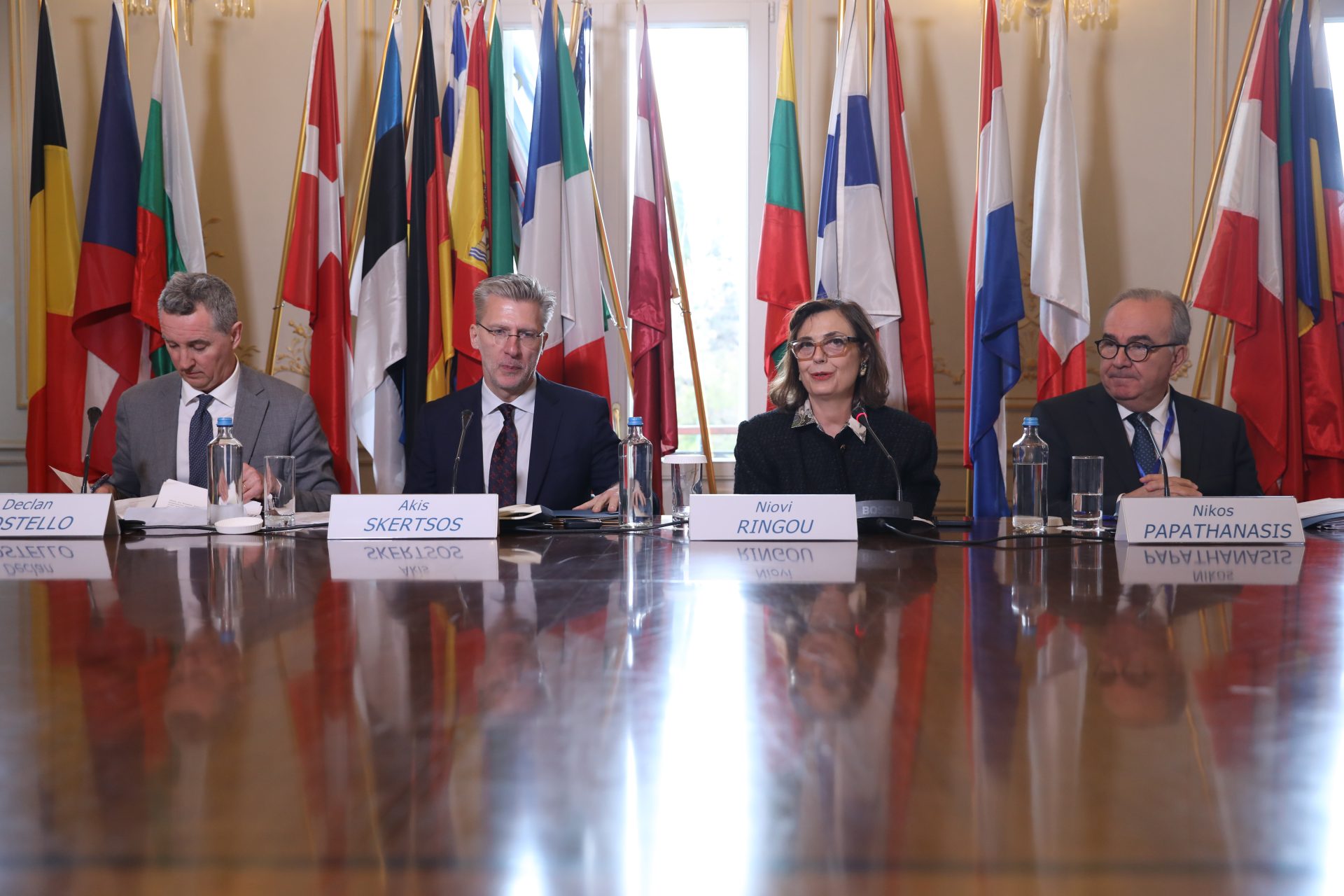
A conference focusing on the Greek Recovery and Resilience Plan (Greece 2.0), which is funded by the EU through the NextGenerationEU initiative, was held in Athens. The event was organized by the European Commission in partnership with the Foundation for Economic and Industrial Research (IOBE). The theme of the conference was “Opportunities and Challenges for the Competitiveness of the EU: What’s Next for Greece?”
The conference opened with remarks from Niovi Rigou, head of the European Commission Representation in Greece. She discussed the new strategy aimed at restoring competitiveness in Europe, known as the “Competitiveness Compass,” underscoring that “the European Commission has prioritized competitiveness in its economic agenda to bolster European businesses in the global marketplace and enhance social welfare within the EU.”
Ms. Rigou also highlighted that “over 18 billion euros have been allocated to Greece under the Recovery and Resilience Facility” and emphasized the importance of accelerating the implementation of the national Recovery and Resilience Plan to achieve timely results.
Nikos Papathanasis: “Competitiveness is crucial for economic growth and prosperity”
The Deputy Minister of National Economy and Finance, Nikos Papathanasis, further addressed the conference, stating that “competitiveness is fundamental to economic growth and prosperity.” He noted that Greece has made substantial strides in structural reforms, attracting investments, and advancing green and digital transformation.
He emphasized that enhancing Europe’s competitiveness necessitates a comprehensive approach that integrates innovation, digital transformation, sustainability, human capital, and economic integration, labeling the European Competitiveness Compass as an ambitious initiative.
Additionally, he remarked that “the upcoming Multiannual Financial Framework presents an excellent opportunity to analyze the structure and distribution of the EU budget to support competitiveness priorities.” He asserted that adaptability to global challenges, effective utilization of EU financial instruments, and commitment to reforms are vital for success.
“In the face of global challenges, we must unite to create a competitive, innovative, and sustainable future—one that ensures the EU maintains its leadership in the global economy,” he stated.
Declan Costello: “Greece has made significant progress over the past decade”
In his opening remarks, Declan Costello, Deputy Director-General of the Directorate-General for Economic and Financial Affairs (ECFIN), acknowledged the significant progress Greece has made compared to the previous decade marked by economic crisis. He noted that “the Greek economy has experienced continuous GDP growth in real terms since 2018, with a growth rate of 9.2%, significantly surpassing the EU average of 6.3%.”
However, Mr. Costello pointed out that “despite these positive developments, Greece still needs to tackle various structural weaknesses.” For instance, he highlighted that the country’s real GDP remains 17% below 2007 levels, and despite ongoing improvements, a significant productivity gap persists compared to the EU average, impacting growth potential.
He concluded by stressing the need for Greece to enhance its business environment and increase labor force participation. He reiterated the importance of completing the remaining reforms and investments outlined in the national Recovery and Resilience Plan to fully capitalize on available EU funding.
Akis Skertsos: “Our ambition is more than just aligning with EU income levels”
During his keynote address, Akis Skertsos, the Minister of State, emphasized the successful execution of the national Recovery and Resilience Plan, which has significantly propelled the nation’s development. He stated, “We have a responsibility to continue enhancing citizens’ daily lives through improved income, public health, education, and job opportunities.”
He underscored that true competitiveness and prosperity must be felt at the individual level, asserting that public perception equates to reality. Skertsos emphasized that continuous daily improvements in citizens’ lives are essential for ensuring security, stability, and predictability in Greece.
The Minister articulated that a common framework for honest dialogue among governments, academia, media, and society about the state of the economy is critical, and proposed eight indicators to measure success: fiscal stability, borrowing costs, the banking system’s competitiveness, export levels, public and private debt, crisis management skills, employment rates, and investment volume.
“In these eight indicators, the Greek economy has demonstrated its capacity to set and achieve ambitious targets over the past five years,” he













Leave a Reply